On a tiny Greek island, the commute is a barefoot walk to a shaded table, not a train platform. The change isn’t about escape as much as it’s about re‑drawing a life that makes sense.
At first light the ferry breathes out a handful of passengers, and the harbour slides into its morning soundscape: a clink of coffee cups, gulls stitching the sky, someone hosing down the steps of a shop. A young father balances a laptop bag and a snorkel, choosing a taverna table where the plug socket is friendly and the view is outrageous, and you realise the laptops aren’t a joke or a phase. People here type fast, swim often, and talk softly about quitting jobs that left them stitched to a chair. They’re not on holiday.
Why a tiny Greek island is stealing big-city hearts
The island is the size of a small London borough, yet it holds time differently, and that alone is a lure for people who’ve had enough of fluorescent light and packed screens. Talk to newcomers and the refrain repeats: fewer pings, more sky, work that still happens yet no longer chews the day. Cafés know the rhythm now, serving espresso like fuel at 8, a second round at 11, and plates of tomatoes that taste of sunlight at 1.
Elena, 35, left a Manchester marketing job after another quarter of “just one more push” and took a remote contract that fits in a backpack as easily as her swimsuit. She shows me a one‑bed house above the harbour, white walls, blue shutters, a view you’d pay a city deposit for, rented at winter rates she can actually afford. **In the quiet months, long lets here can sit around €350–€500 with a sea view, and that number makes shoulders drop.** Her productivity, she says, went up when the noise went down.
Ask why this place and the answers line up: modest costs, straight‑line mornings, fibre that arrived with the new seabed cable and a mobile network that surprises people who expect patchy bars. Employers are calmer now about remote work, and clients barely notice the difference with calls scheduled in the British lunch hour. *The mainland suddenly feels very far away.* What they do notice is that decisions are sharper when the day is not a blur, and burnout loosens its grip when sunsets arrive on time.
How people actually make it work here
The trick starts with a simple week map: early mornings for deep work before the cicadas hum, a midday swim as a reset instead of a doom‑scroll, calls slotted to UK time in the late afternoon shade. People here run on two connections, not one — fixed internet in the house and a mobile hotspot in the bag, because ferries aren’t the only thing that can wobble. A small UPS battery keeps routers alive during brief power flickers, and a cheap data eSIM becomes gold on windy days.
The biggest mistakes are easy to make: arriving in high season and expecting a quiet desk, underestimating the bite of the meltemi wind in late summer, thinking winter will be tourist‑empty when the village is actually very alive — just different, more local, more neighbourly. Learn five phrases of Greek and life smiles back twice as fast. Let’s be honest: nobody really does that every day. Set boundaries with clients before you land, and the island’s pace becomes an ally rather than a test.
We’ve all had that moment when your body says “stop” while your calendar pretends it’s fluent in miracles, and that’s the gap this island patches with sun and structure.
“People don’t come here to do less,” the café owner tells me, wiping a glass until it sings. “They come to do the right amount, and then go for a swim.”
- Dual internet plan: home fibre or VDSL plus a 50–100 GB mobile data bundle.
- Portable hotspot and spare charging cables; a mini UPS for the router.
- Noise‑cancelling headphones for the lunchtime moped parade by the quay.
- Tax and visa homework: Greece’s digital nomad visa exists, and Schengen days still count.
- Healthcare basics: GHIC/EHIC for Brits on short stays, travel cover, and local clinic info.
The trade you feel, not just count
What’s really happening is a swap: status anxiety for sea breezes, a 90‑minute commute for a 9‑minute walk, quantity for quality that doesn’t shout about itself. People who once skimmed through weekends now notice the moon’s shape, watch the baker’s light flick on, learn the ferry timetables the way they once knew train delays. **You can hear your own thoughts again, and that’s not small.** It’s not perfect, not permanent for everyone, and it won’t fix a bad job if the job itself is the problem — yet the island offers a clean conversation with your life that cities muffle.
| Point clé | Détail | Intérêt pour le lecteur |
|---|---|---|
| Connectivity without drama | Home fibre/VDSL in main villages, strong 4G and pockets of 5G, easy eSIM top‑ups | Work calls are stable, backups ready, peace of mind when deadlines bite |
| Costs that breathe | Winter rents often €350–€500 for a one‑bed; everyday meals €8–€12; coffee €2 | Budget stretches further than the city, leaving room for savings and time |
| Rhythm that supports focus | Early deep‑work blocks, midday resets, late‑afternoon calls aligned to UK time | Higher quality output without the grind, plus energy left for actual life |
FAQ :
- When’s the best time to try island life?April–June and September–November bring quieter lanes, fair prices, and steady weather, with enough buzz to feel alive yet not so much that your inbox has to compete with crowds.
- Do I need a visa to work remotely from Greece?UK passport holders can stay 90 days in any 180 without a visa; longer stays may fit Greece’s digital nomad visa if you meet income and health cover rules, so check the latest consulate guidance.
- Is the internet actually good enough for video calls?Yes in the main villages, where home lines often hit 50–100 Mbps and mobile hotspots easily cover as a backup; test speeds on arrival and keep a second SIM just in case.
- What does day‑to‑day life cost?Winter rents for simple one‑beds range around €350–€500, fresh groceries are friendly to a weekly shop, and eating out can be modest if you go local and seasonal rather than beachfront fancy.
- Will I be lonely in winter?It’s quieter and ferries can pause for a blowy day, yet the community deepens — language classes, football by the school, long coffees that turn into suppers — if you show up with curiosity and time.

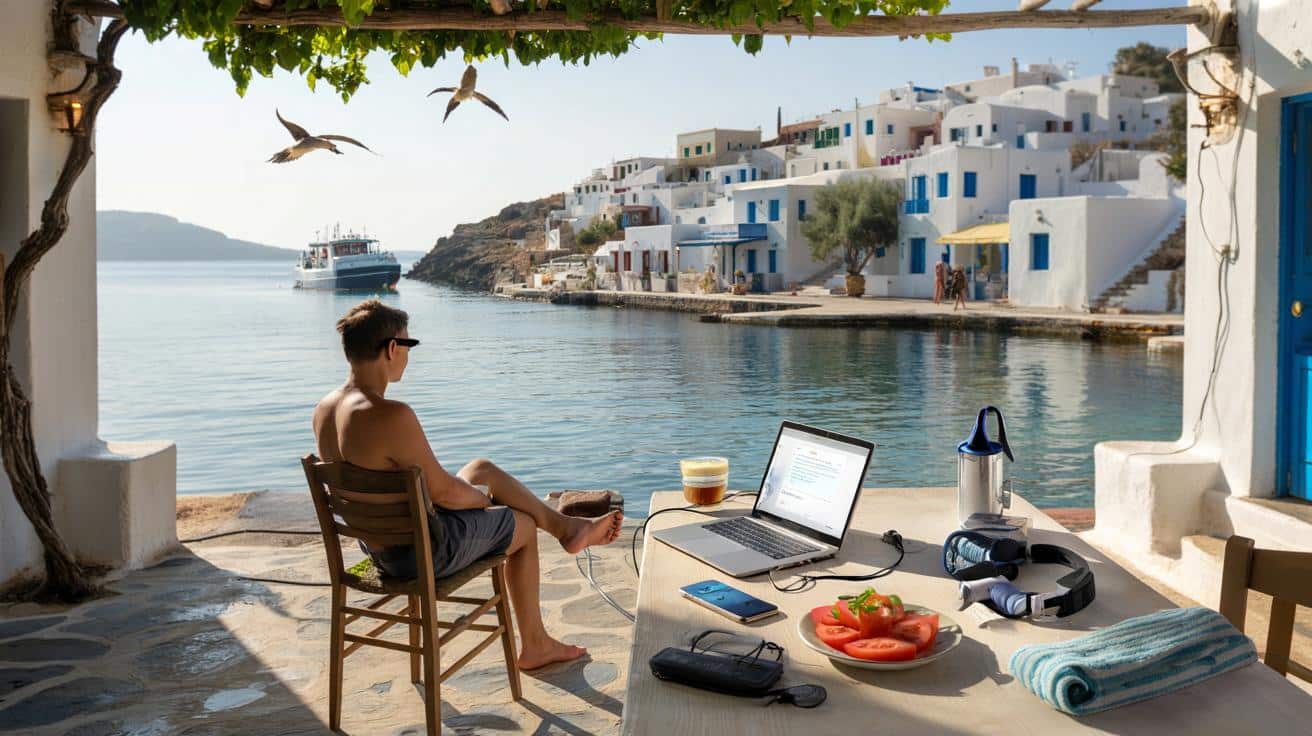
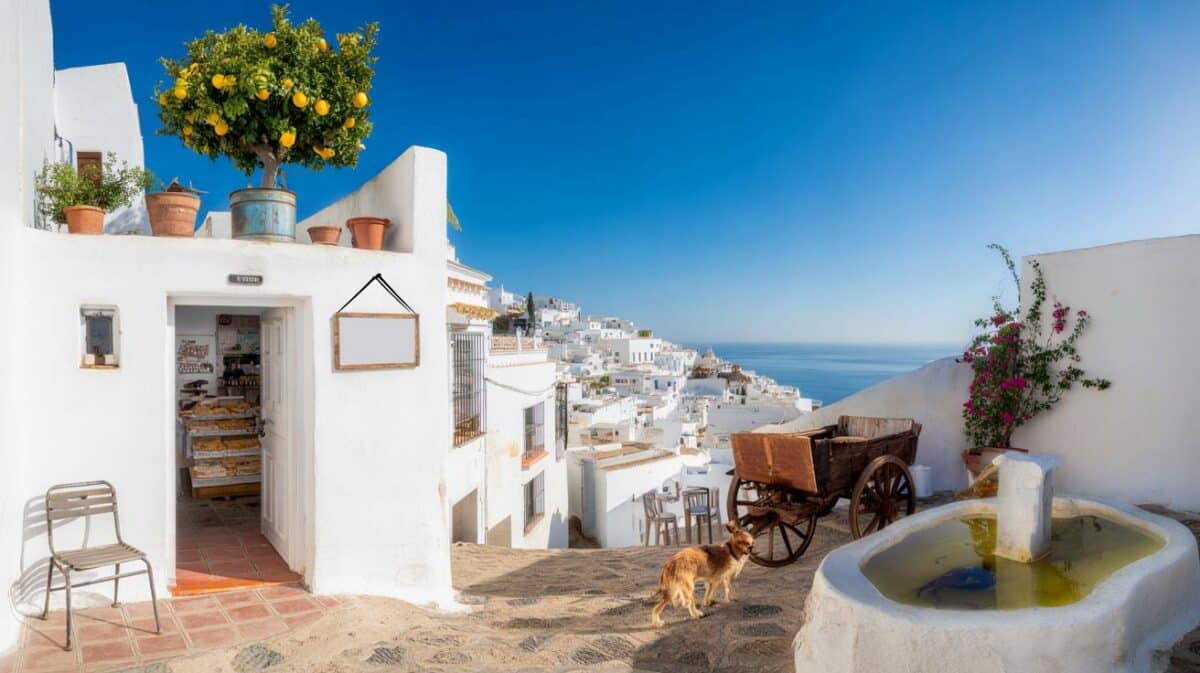
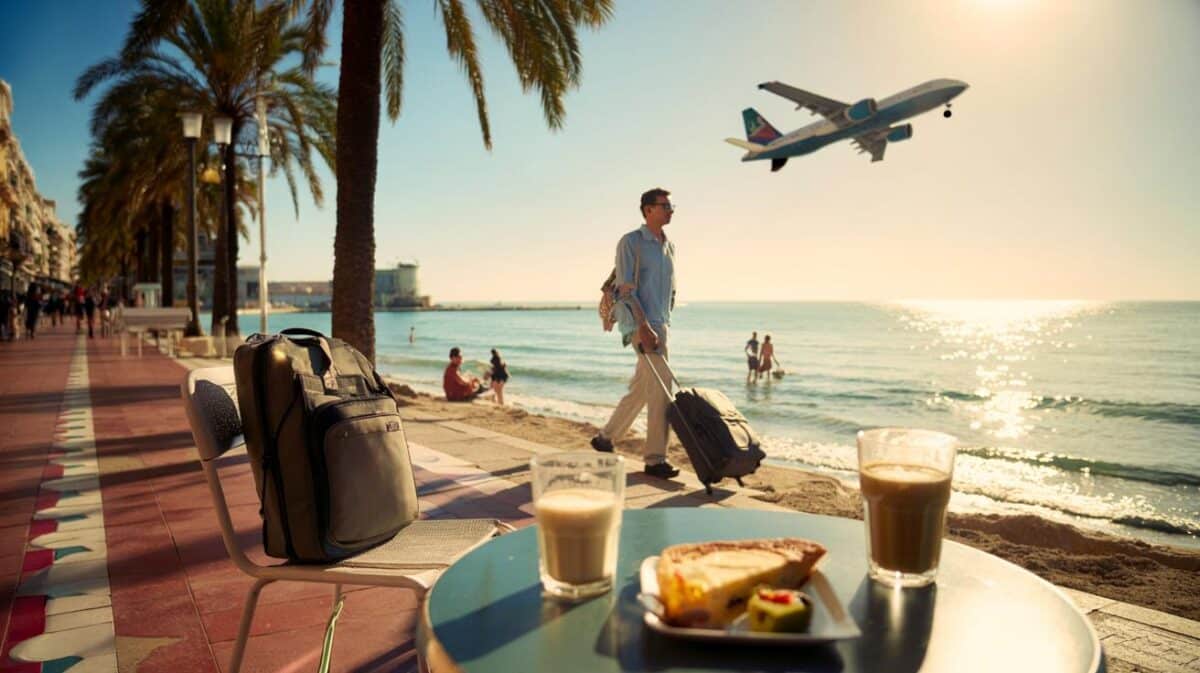



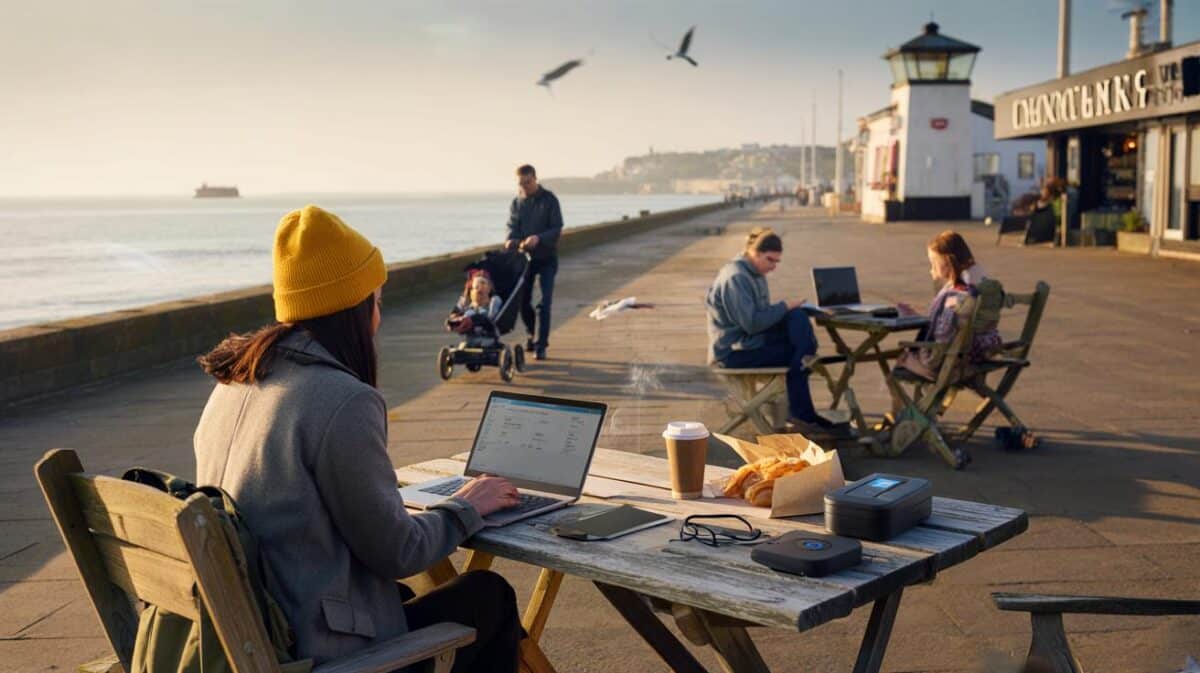
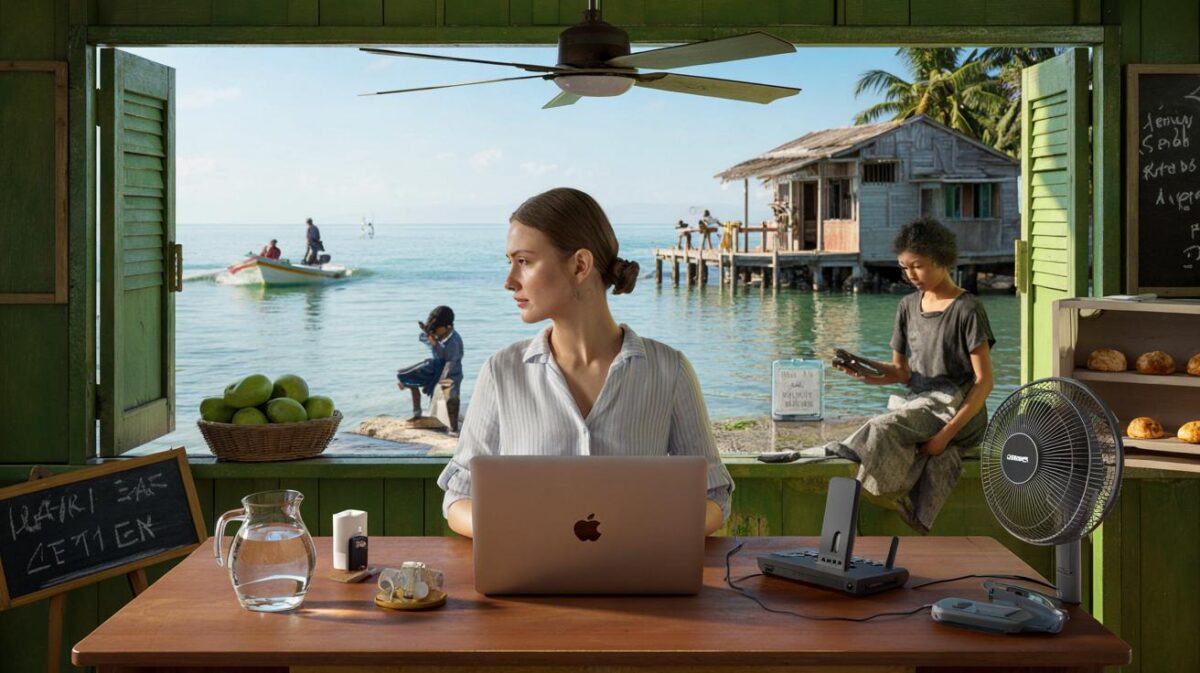

Barefoot commute and tomatoes that taste like sunlight? Sign me up 🙂